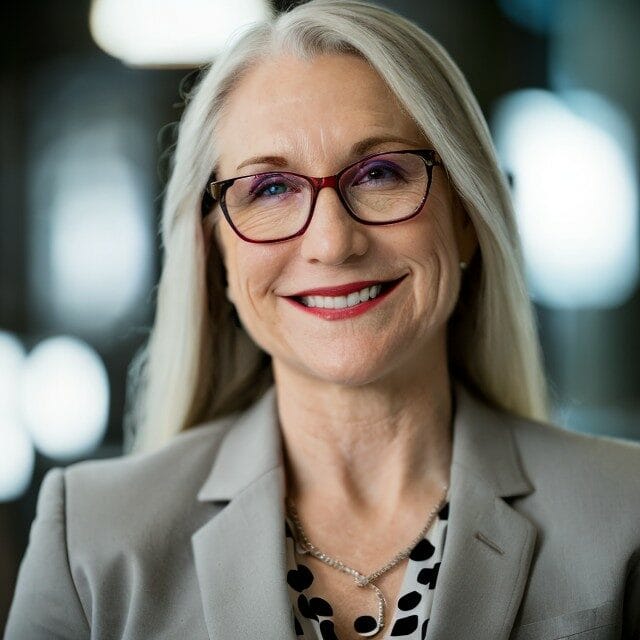The Pricing Paradox: Why Women Founders Shrink Themselves and How to Break the Cycle of Average Prices
The pricing paradox is what women founders face every day. Even in boardrooms where we have earned our way into, we still hesitate to name our worth. We shrink ourselves to fit a market that was never shaped with us in mind. The world doesn’t always tell women we’re worth more—but the most dangerous voice is the one inside that starts to believe it.

You’ve done the work. You’ve built the offer. You know it delivers. And still—when it comes time to name your price, something inside you flinches. You lower the number, just enough to make it palatable, safe, acceptable.
This is the pricing paradox women founders face every day. Even in boardrooms we have earned our way into, we still hesitate to name our worth. We shrink ourselves to fit a market that was never shaped with us in mind. The world doesn’t always tell women we’re worth more—but the most dangerous voice is the one inside that starts to believe it.
Breaking the cycle isn’t about ego—it’s about accuracy. Your pricing is a mirror. It reflects not just the product or service, but your belief in your own potential. Until you stop measuring your value against what’s “normal,” you’ll keep undercutting the extraordinary.
You weren’t made to fit the average. You were made to raise the standard.
Know Your Worth- Don’t Shrink Yourself
You’ve built your business from the ground up. You’ve navigated the complexities of entrepreneurship, balancing innovation with practicality. Yet, when it comes to setting your own compensation, you might find yourself hesitating, undervaluing your worth. Studies indicate that female entrepreneurs often pay themselves less than their male counterparts, even when operating in the same industries.
This isn’t just about numbers; it’s about the narratives we’ve internalized. From a young age, societal norms often teach women to be modest, to avoid self-promotion, and to prioritize others’ needs over their own. These ingrained beliefs can lead to a reluctance to charge what you’re truly worth, even when your expertise and contributions are invaluable.
But here’s the truth: your value isn’t determined by outdated norms or societal expectations. It’s defined by the impact you make, the innovation you bring and the dedication you invest in your business. Recognizing and embracing your worth is the first step toward breaking free from these limiting beliefs.
When undervaluing your services, you're not only shortchanging yourself but also perpetuating a cycle that affects the broader entrepreneurial ecosystem. Charging what you're worth isn't just about fair compensation; it's about asserting your value and setting a precedent for others.
To reclaim your worth, start by acknowledging the internalized beliefs that may be holding you back. Engage in self-reflection and challenge the narratives that no longer serve you. Seek mentorship and support from networks that empower and uplift women entrepreneurs. And most importantly, set your prices based on the value you provide, not on what you think others expect you to charge.
Remember, your skills, experience and vision have intrinsic value. It’s time to embrace that value fully and unapologetically. By doing so, you not only enhance your own business but also contribute to a more equitable and empowered entrepreneurial landscape.
The Roots of Women Undervaluation
Several factors contribute to this phenomenon.

Societal norms and expectations have historically conditioned women to be modest about their achievements and cautious in financial negotiations. This conditioning can lead to a lack of confidence in setting prices that reflect the true value of their services. Women founders often face challenges in accessing funding and resources, which can further impact their pricing strategies. A study from J. Thelander Consulting found that female founders pay themselves significantly less than their male counterparts, with average annual salaries of $179,444 for women compared to $232,659 for men.
Never Shrink and Average Yourself
Here’s the truth no one tells you when you’re building something of your own: the market doesn’t reward the middle. Averaging your price might feel like the smart move—safe, digestible, fair. But fair to whom? Pricing yourself at the average sends a quiet message: I’m not a risk, but I’m not remarkable either. And that’s not the message you want associated with your name, your brand, or your vision.
When you average your price, you anchor your value to what others are charging, not to the quality, depth, or distinctiveness of what you deliver. You dull your edge to fit into a mold that wasn’t made with you in mind. You let market norms—often built by and for people who don’t share your experience—decide what you’re worth.
But you’re not here to be standard. You’re here to be exceptional. And exceptional doesn’t blend in.

Clients and investors don’t always choose the cheapest option—or the most reasonable one. They choose the one that signals belief, confidence, insight, vision. Price speaks. And when you price boldly, it tells the world you’re not just delivering a service—you’re delivering something only you can offer. It shows you understand the value of transformation, not just transaction.
So no, don’t average your price. Don’t shrink to fit inside someone else’s bracket. Define your own. Because what you’re building isn’t average. And neither are you.
Breaking the Cycle:Define Your Purpose
Before diving into the depths of self-assessment, it’s crucial to pause and define the purpose behind the exercise. Why are you taking this time to evaluate yourself? What do you hope to gain from this process? If you don’t define your purpose clearly, you risk heading into the exercise without direction, which can lead to vague conclusions or, worse, no actionable insights at all.
Start by asking yourself: What specific outcomes do I want from this self-assessment? For some, the goal might be to identify areas where they can improve—perhaps in leadership, communication, or technical skills. If that resonates with you, think about the skills that feel like obstacles in your progress, or areas where feedback from others has suggested room for growth.
If you’re in a leadership role or aspiring to one, you might aim to gain more recognition for your contributions. Do you often feel overlooked in meetings or uncertain about how your ideas are received? Is your work making the impact you intend, but it’s going unnoticed? Defining your purpose in this way can give you clarity on whether the issue lies in how you’re presenting your contributions, your strategic approach, or even in the workplace culture itself.
Alternatively, you might be at a crossroads in your career, facing a period of transition or considering new challenges. In this case, setting clear career goals becomes your primary focus. Ask yourself: Where do I see myself in the next 1, 3, or even 5 years? This could include taking on bigger projects, shifting industries, building a stronger network, or even making a move to a different position that better aligns with your values and passions. Once you define these goals, your self-assessment will not only help you identify the skills and experiences needed to get there, but it will also give you the confidence to make the necessary moves.
Whatever your purpose may be, be intentional about it. Instead of seeing self-assessment as a passive reflection of your current state, view it as a powerful tool for clarifying your vision, making informed decisions, and ensuring that every step you take in your personal or professional growth is aligned with what you truly want to achieve. By grounding your assessment in a clear sense of purpose, you’ll be far more likely to find direction, take meaningful action, and achieve the growth you’re aiming for.
When you acknowledge and address the factors that lead to undervaluation, you can set pricing strategies that truly reflect your worth, leading to greater financial sustainability and better positioning of your businesses.
Do you want to share your story and inspire our readers ? Know that YOUR EXPERTISE is paving the way for a fairer, happier society.




